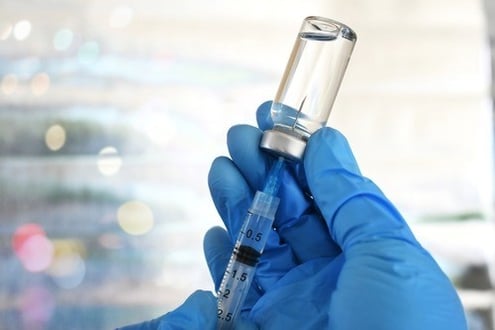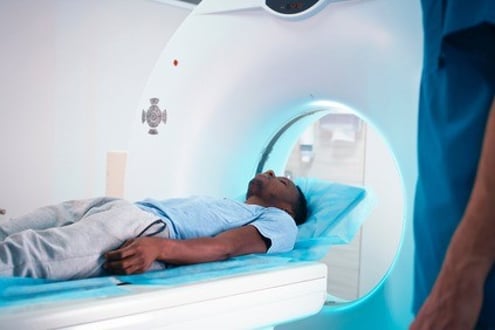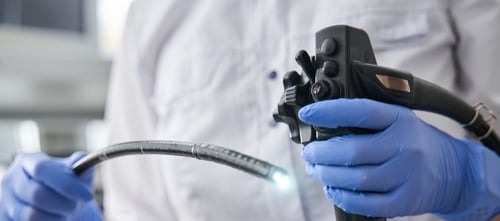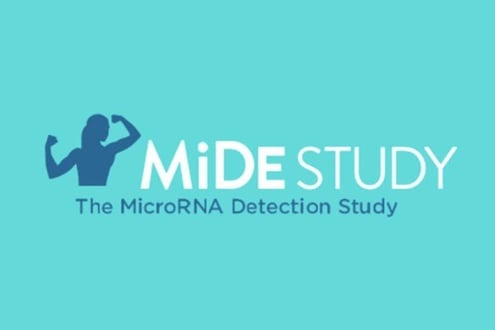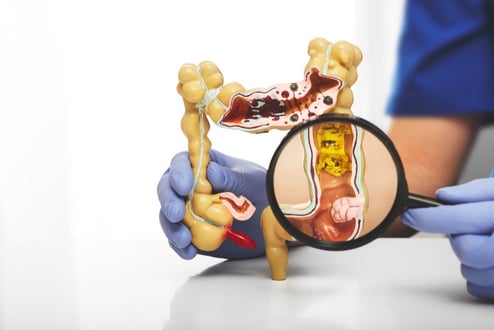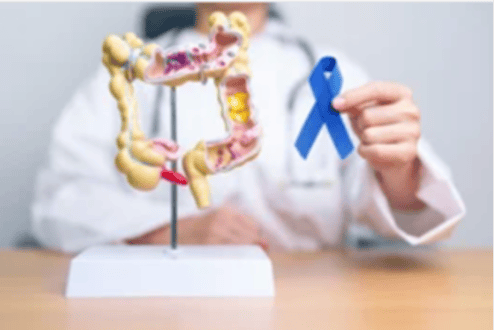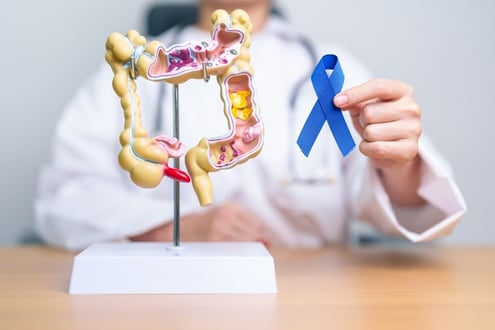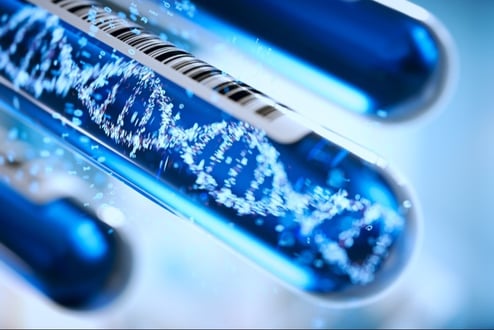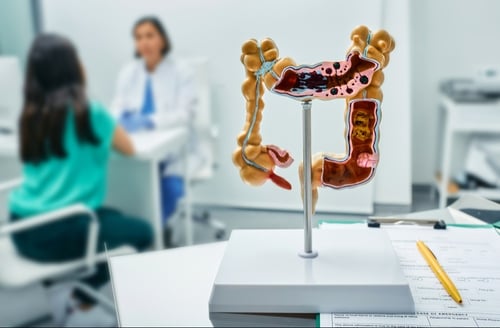MLH1 Gene Mutations (Lynch Syndrome)

Information about Inherited Mutations
()
What is an mutation?
is a gene that helps repair damage to your . Inherited mutations in the gene cause . People with have an increased risk for several types of cancer. Other names for include:
- Hereditary Nonpolyposis Colorectal Cancer ()
- Muir-Torre syndrome, which refers to a subset of in which people have an increased risk of developing rare skin tumors.
Which cancers are associated with an mutation?
People with an inherited mutation have an increased risk for many cancers, especially of the large intestine (the colon and the rectum) and uterus (endometrium). Expert guidelines include estimates of the lifetime cancer risks for people with mutations.
Does everyone with an mutation develop cancer?
Although the lifetime risk for cancer with an mutation is very high, not everyone with the mutation develops cancer. Following the guidelines for screening and prevention increases the chances of preventing cancer or catching it at its earliest and most treatable .
Can mutations skip a generation?
mutations are passed down from parents to children, but they do not skip generations. Each person with an mutation has a 50% chance of passing their mutation on to each of their children. Children who did not inherit their parent's mutation cannot pass the mutation to their children.
People with an mutation who never develop cancer can still pass their mutation on to their children. A child who inherits their parent's mutation will be at increased risk for cancer.
What can people with an mutation do?
People with an mutation have options for screening, prevention and treatment of . There are expert guidelines and clinical trials that focus on:
- screening and early detection
- risk-reduction
- treatment
These expert guidelines are updated every year based on new research.
There may be other medical concerns, including a rare childhood disease known as “constitutional (CMMRD),” which can happen in people who inherit a mutation in both copies of their gene.
If you test positive for an mutation, you should inform your close blood relatives (first-, second-, and third-degree relatives) about your test results and encourage them to speak with a genetics expert.
More detailed information for people with inherited mutations is highlighted below.
Get notified when updated information becomes available.
SIGN UP FOR CONTENT UPDATESMore Information for People with Mutations
Cancer Risks
Cancer risk estimates are updated based on the latest research. Read about the lifetime risk for different cancers in people with and inherited MLH1 mutation.
Risk Management Options
Read about the latest expert guidelines for cancer screening and prevention for people with an MLH1 mutation. Learn about research studies enrolling high-risk patients.
Cancer Treatment Options
Tumor biomarker testing and genetic testing can provide additional clues about which treatments may work best for your cancer. People who test positive for an MLH1 mutation may have additional treatment or clinical trial options available to them.
Other Considerations
People who inherit a mutation in both copies of their MLH1 gene—one from each parent—have a rare disease known as "constitutional mismatch repair deficiency." Learn additional information about inherited MLH1 mutations.
More Resources
Participate in Prevention Research
The screening and prevention studies below are enrolling people with mutations. To search for more studies, visit our Search and Enroll Tool.
Vaccine for People at High Risk for Pancreatic Cancer
Clinicaltrials.gov identifier: NCT05013216
Using a Shorter Type of MRI as a Screening Tool for People at High Risk for Prostate Cancer
Clinicaltrials.gov identifier: NCT05384535
The DETECT Study: Detecting Endometrial Cancer in Tampons
Clinicaltrials.gov identifier: NCT03538665
Lynch Syndrome Study to Detect Colorectal Cancer or Polyps
Clinicaltrials.gov identifier: NCT05410977
Participate in Treatment Research
The treatment studies below are enrolling people with mutations. To search for more studies, visit our Search and Enroll Tool.
Post-surgery Immunotherapy (Toripalimab) for MMR-D / MSI-H Stage IIB-III Colon Cancer
Clinicaltrials.gov identifier: NCT07140679
Study of the Drug Olvi-Vec in Women with Ovarian Cancer
Clinicaltrials.gov identifier: NCT05281471
The Phoenix Trial: Cemiplimab for Patients with Localized dMMR Colon Cancer
Clinicaltrials.gov identifier: NCT05961709
Treatment of HER2-positive Colorectal Cancer as First Line Treatment in the Metastatic Setting
Clinicaltrials.gov identifier: NCT05253651
Watch Our Webinars for People with
What's new for people with Lynch syndrome?
Spotlight on Hereditary Cancer Research


